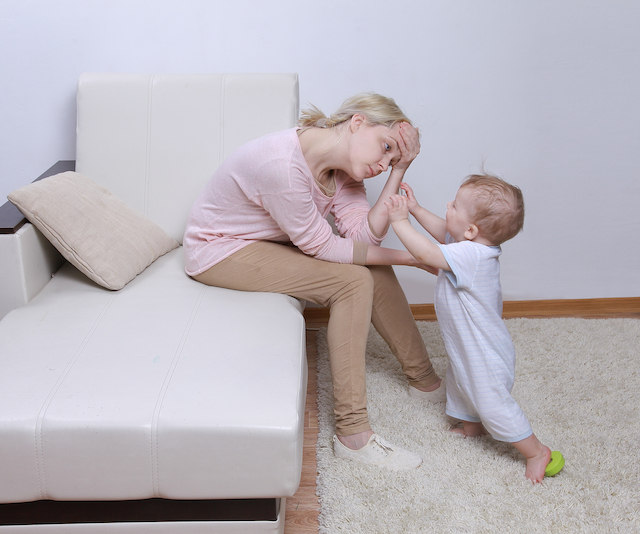Many women struggle with adjusting to motherhood following the birth of a child. Not all women are prepared for the major changes that come with the new role of parenting. Some have difficulty balancing old roles such as at work or in relationships and the new demands of caring for children. Add in sleep deprivation and a woman can really become overwhelmed and have a hard time functioning in day-to-day life as a new mom.
Signs of Post-Partum Depression Include:
- Sadness most or all of the day
- Avoiding social interactions with others or feeling isolated
- Inability to care for yourself or meet the needs of the baby due to worry or sadness
- Challenges with bonding with the baby, feeling disconnected
- Extreme worry of the health and safety of the baby, worry about not being a good mother
- Difficulty sleeping (beyond the normal sleep disruption from a newborn)
- In extreme cases, thoughts of harming yourself or the baby
Although some women have enough symptoms to get diagnosed with Post-Partum Depression, many more experience a few of the symptoms and are suffering with impaired functioning in their lives. Symptoms typically come on immediately after birth but can emerge a few months to a year following the birth of a child. Women with depression or anxiety prior to pregnancy or following previous pregnancies may be at increased risk. If you are struggling with any of these symptoms, reach out to your OBGYN or a therapist that specializes in treating these issues. Know you are not alone. In fact, about 10-20% of women suffer following the birth of their child. To learn more about available services to help with post-partum anxiety and depression such as therapy or medication management visit www.insightactiontherapy.com.
Angie Harris, LCSW, MAC, MA, is a therapist with Insight Into Action Therapy. She enjoys helping girls and women manage gender-specific life stressors and working through their problems with a solution-focused lens. Angie has been training on a number of issues, such as post-partum depression and anxiety, as well as strategies to support women, such as through Cognitive Behavioral Therapy (CBT) and Dialectal Behavior Therapy (DBT) skill building. If you are interested in therapy services with her, give her a call at (703) 646-7664 or aharris@insightactiontherapy.com.







